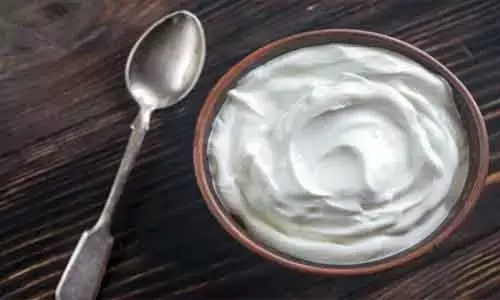- Home
- Medical news & Guidelines
- Anesthesiology
- Cardiology and CTVS
- Critical Care
- Dentistry
- Dermatology
- Diabetes and Endocrinology
- ENT
- Gastroenterology
- Medicine
- Nephrology
- Neurology
- Obstretics-Gynaecology
- Oncology
- Ophthalmology
- Orthopaedics
- Pediatrics-Neonatology
- Psychiatry
- Pulmonology
- Radiology
- Surgery
- Urology
- Laboratory Medicine
- Diet
- Nursing
- Paramedical
- Physiotherapy
- Health news
- Fact Check
- Bone Health Fact Check
- Brain Health Fact Check
- Cancer Related Fact Check
- Child Care Fact Check
- Dental and oral health fact check
- Diabetes and metabolic health fact check
- Diet and Nutrition Fact Check
- Eye and ENT Care Fact Check
- Fitness fact check
- Gut health fact check
- Heart health fact check
- Kidney health fact check
- Medical education fact check
- Men's health fact check
- Respiratory fact check
- Skin and hair care fact check
- Vaccine and Immunization fact check
- Women's health fact check
- AYUSH
- State News
- Andaman and Nicobar Islands
- Andhra Pradesh
- Arunachal Pradesh
- Assam
- Bihar
- Chandigarh
- Chattisgarh
- Dadra and Nagar Haveli
- Daman and Diu
- Delhi
- Goa
- Gujarat
- Haryana
- Himachal Pradesh
- Jammu & Kashmir
- Jharkhand
- Karnataka
- Kerala
- Ladakh
- Lakshadweep
- Madhya Pradesh
- Maharashtra
- Manipur
- Meghalaya
- Mizoram
- Nagaland
- Odisha
- Puducherry
- Punjab
- Rajasthan
- Sikkim
- Tamil Nadu
- Telangana
- Tripura
- Uttar Pradesh
- Uttrakhand
- West Bengal
- Medical Education
- Industry
Yogurt may help reduce risk of breast cancer, says new study

The paper has been published in the journal Medical Hypotheses.
UK: Probiotics are good, friendly bacteria with specific health benefits. Yogurt has probiotic bacteria and has proven beneficial effects in gastrointestinal illnesses but their effectiveness in illnesses of symptoms pertaining to other systems are not known.
Researchers including Lancaster University medical student Auday Marwaha, Professor Jim Morris from the University Hospitals of Morecambe Bay NHS Trust and Dr Rachael Rigby from Lancaster University's Faculty of Health and Medicine have hypothesized that daily yogurt consumption may be a measure for preventing breast cancer.
One of the causes of breast cancer may be inflammation triggered by harmful bacteria say, researchers.
Yogurt contains beneficial lactose fermenting bacteria commonly found in milk, similar to the bacteria - or microflora- found in the breasts of mothers who have breastfed.
Scientists say their idea- as yet unproven - is supported by the available evidence, which is that bacterial-induced inflammation is linked to cancer.
The paper has been published in the journal Medical Hypotheses.
The researchers say that: "There is a simple, inexpensive potential preventive remedy; which is for women to consume natural yogurt on a daily basis."
Dr Rigby said: "We now know that breast milk is not sterile and that lactation alters the microflora of the breast.
"Lactose fermenting bacteria are commonly found in milk and are likely to occupy the breast ducts of women during lactation and for an unknown period after lactation."
Their suggestion is that this lactose fermenting bacteria in the breast is protective because each year of breastfeeding reduces the risk of breast cancer by 4.3%.
Several other studies have shown that the consumption of yogurt is associated with a reduction in the risk of breast cancer, which the researchers suggest may be due to the displacement of harmful bacteria by beneficial bacteria.
There are approximately 10 billion bacterial cells in the human body and while most are harmless, some bacteria create toxins that trigger inflammation in the body.
Chronic inflammation destroys the harmful germs but it also damages the body. One of the most common inflammatory conditions is gum disease or periodontitis which has already been linked to oral, oesophageal, colonic, pancreatic, prostatic and breast cancer.
The researchers conclude that: "The stem cells which divide to replenish the lining of the breast ducts are influenced by the microflora, and certain components of the microflora have been shown in other organs, such as the colon and stomach, to increase the risk of cancer development.
"Therefore a similar scenario is likely to be occurring in the breast, whereby resident microflora impact on stem cell division and influence cancer risk."
For further reference log on to: http://dx.doi.org/10.1016/j.mehy.2019.109530
Dr Kamal Kant Kohli-MBBS, DTCD- a chest specialist with more than 30 years of practice and a flair for writing clinical articles, Dr Kamal Kant Kohli joined Medical Dialogues as a Chief Editor of Medical News. Besides writing articles, as an editor, he proofreads and verifies all the medical content published on Medical Dialogues including those coming from journals, studies,medical conferences,guidelines etc. Email: drkohli@medicaldialogues.in. Contact no. 011-43720751


